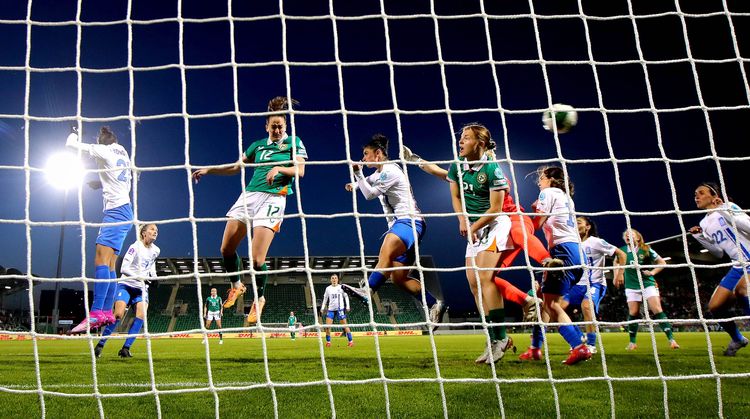Page Turner / Edited by Peter McDermott
‘The election of Joe Biden as President of the United States reminds me of the old adage that Ireland is the only country in the world where English is spoken and the Irish don’t rule.”
So said Albie Sachs, anti-apartheid activist and former judge on the Constitutional Court of South Africa, in commending “Anois ar theacht an tSamhraidh: Ireland, Colonialism and the Unfinished Revolution.”
Sachs continued, “Biden's term in office will focus minds on Ireland and its peace process. Why such a peace process was necessary, why it needs protection, and why the authors believe that ultimately Ireland's future depends on breaking the colonial link, is at the core of this audacious and fascinating book.”
Prominent America social critic, activist and academic Noam Chomsky added his praise: “A very impressive contribution to understanding our world, how it arose, and why it must dramatically change.”
Chomsky said, “With an 800 year history of harsh and often murderous foreign domination, Ireland provides ample evidence for the interplay of imperialism, colonialism and colonial state structure, along with race, class, and religion, topics explored here with subtlety and insight both in Ireland’s specific colonial experience and quest for decolonization, and in global history more generally.”
“I was born in Carrickfergus, Co. Antrim, in 1962 but raised in County Tyrone,” said one of its two authors, Robbie McVeigh, bringing things back to the local. “I just about remember a world before the Troubles and the rest of my life has been spent surviving them or recovering from them. The belated [May 2021] declaration of innocence of the 10 people killed in Ballymurphy after the introduction of internment in 1971 was just the latest reminder of how we all still live with this history. And in solidarity with -- rather than in opposition to -- the BLM moment, we must observe that these lives mattered too.
“I work as a researcher and I’ve written extensively on racism and sectarianism and human rights,” McVeigh said, before answering some other Page Turner questions. “I’m currently working on a piece of research on Irish medium education in the north of Ireland.”

Robbie McVeigh.
What is your latest book about?
It’s called “Anois ar theacht an tSamhraidh: Ireland, Colonialism and the Unfinished Revolution” and co-authored with Bill Rolston. As that suggests, it is essentially a meditation on Ireland and colonialism from 1155 – when the “Bull Laudabiliter” from Pope Adrian IV first declared that the English had a right to interfere in Irish affairs – to the present. The homage [in the title] to Padraig Pearse’s declaration that “summer is coming” is an act of optimism of the will – the insistence that despite all our difficulties, it is possible to imagine a better, reunited Ireland. Thus, our conclusion is that, for all our contemporary traumas – from Brexit to Covid – we are on the cusp of a newer and better Ireland with partition removed and the revolution finished.
The book situates Ireland in terms of wider history of colonialism; it then turns to the two states that emerged from the “unfinished revolution” – it traces their contemporary discontents in terms of their relationship to empire; finally, it meditates on how we might transcend some of this history. We argue that recent events combine to make this a particularly propitious moment for those of us who want to see Ireland re-united and the revolution started in 1916 finished. These factors include the outworking of Brexit and the ongoing “demographic transition” in the north whereby Catholics and “others” form a new plurality and the Protestant majoritarianism on which the Northern Ireland state was founded is no longer sustainable. Our reading of Irish resistance to colonialism is that it has always been a choice between Empire and Republic and this is a choice that the whole of Ireland will soon have to make again.
But we also point towards wider opportunities for peace and reconciliation. In particular, we draw on the notion of “mestizaje.” This is the opposite of the racist notion of miscegenation – instead of the racist opposition to “race mixing” we see some of the powerful synergies that come out of different cultures interfacing. The point is that this has always been central to Irishness – in Ireland and in the diaspora. The mestizo nature of Irishness is a constant through our history – from St. Patrick as an enslaved migrant to the new waves of migration that accompanied the Celtic Tiger.
In this context nobody is entirely Protestant or Catholic or unionist or nationalist or planter or Gael or indigenous or migrant – most of us have been mixed for centuries. Moreover, this is a good thing – it reminds us that whether we opt for empire or republic in Ireland, this is a political choice not a racial imperative. We, of course, nail our colors firmly to the mast of the Republic – it promises a more democratic, more egalitarian, and more peaceful future for Ireland and Irishness.
Name three books that are memorable in terms of your reading pleasure.
I’m afraid I read social philosophy for pleasure! So, Stokely Carmichael’s “Black Power” – although the chapter on Lowndes County election in 1966 reads like a political thriller and you read it hoping that justice will be done even while knowing that it will not; Primo Levi – I’d have to say “Complete Works” but if you forced me to choose I would pick “The Drowned and the Saved” because of the way its speaks to contemporary discontents – not least what is happening in Palestine as we speak; and “The Criminal History of the British Empire” by Patrick Ford – an American Irish classic that makes all the right connections.
What book are you currently reading?
“What White People Can Do Next” by Emma Dabir, a young Nigerian Irish author – it hints at all the exciting new possibilities – as well as some of the challenges – facing contemporary Irishness.
Is there a book you wish you had written?
Only about 10 unfinished novels….
Name a book that you were pleasantly surprised by.
I actually worked my way through the various candidates for the ‘Great American novel’ during our first lockdown because someone I respected said that “The Great Gatsby” was her favorite book and I had always found it unreadable. Anyway, the outcome was my realization that Melville’s “Moby Dick” is a brilliantly strange work – challenging racism, pre-echoing the climate emergency and celebrating gay relationships - and it even includes a cameo by a Belfast sailor…
If you could meet one author, living or dead, who would it be?
James Connolly – although I suspect he wouldn’t want to talk about his writing but rather turn immediately to addressing what he correctly anticipated as the “Carnival of Reaction” that followed partition on both sides of the border.
What book changed your life?
Liz Curtis’s “Nothing But the Same Old Story: the Roots of anti-Irish racism” – I read it in London as a young Protestant from the north of Ireland – not quite sure of my identity or politics or place in the world – and it transformed my sense of self and sent me back home to Belfast.
What is your favorite spot in Ireland?
Snug D in the Crown Bar, Belfast – once famous as Belfast’s most bombed bar, now a more tranquil spot - take your time over a pint of stout and you will meet all of Irish life there.
You're Irish if...
You’re Irish even if the shameful Irish Nationality and Citizenship Act of 2004 stripped you of your citizenship. Which reminds us all that we still have a deal of work to do before the revolution is finished….
The book is available in the U.S. from www.beyondthepalebooks.com.









